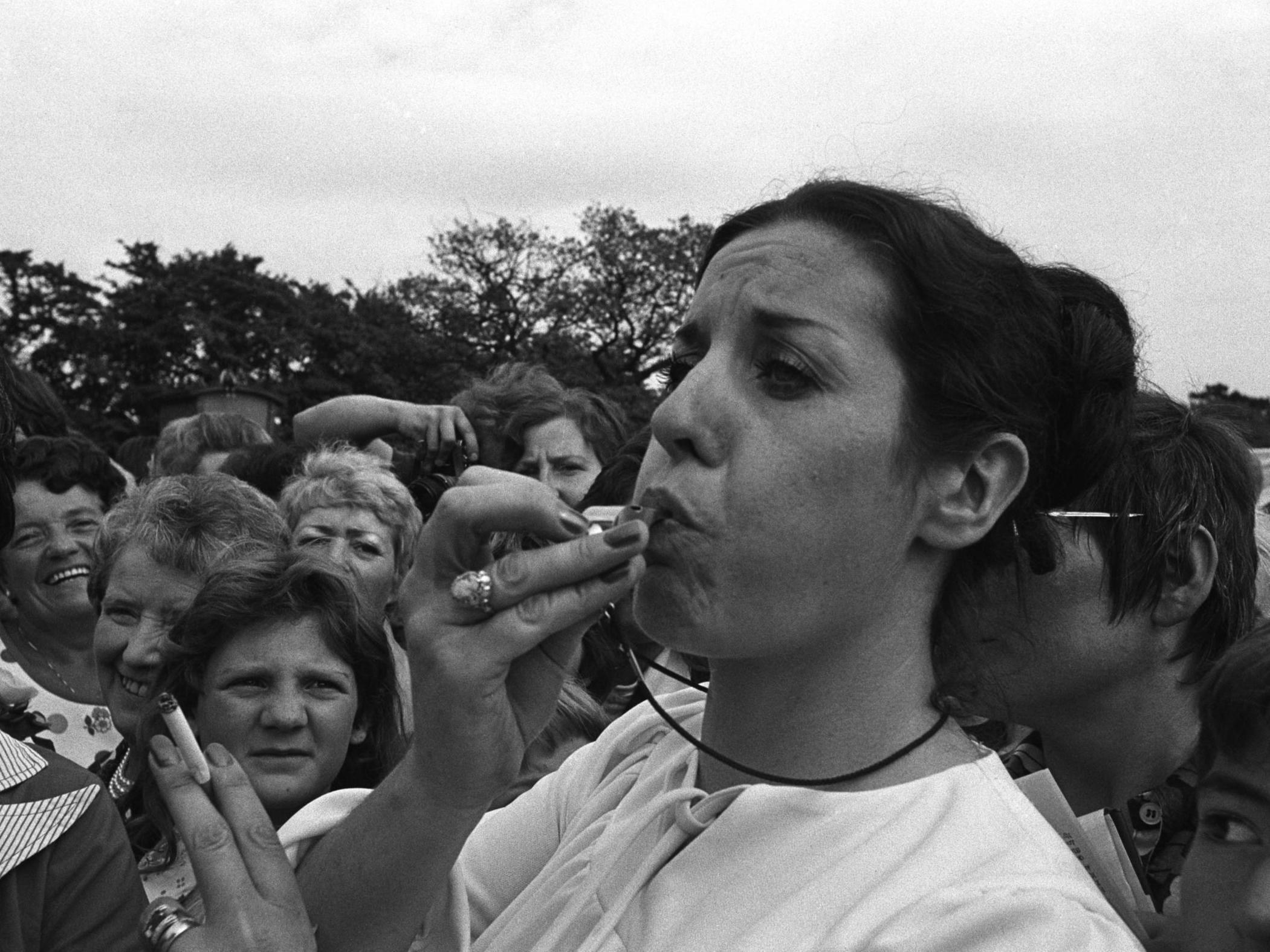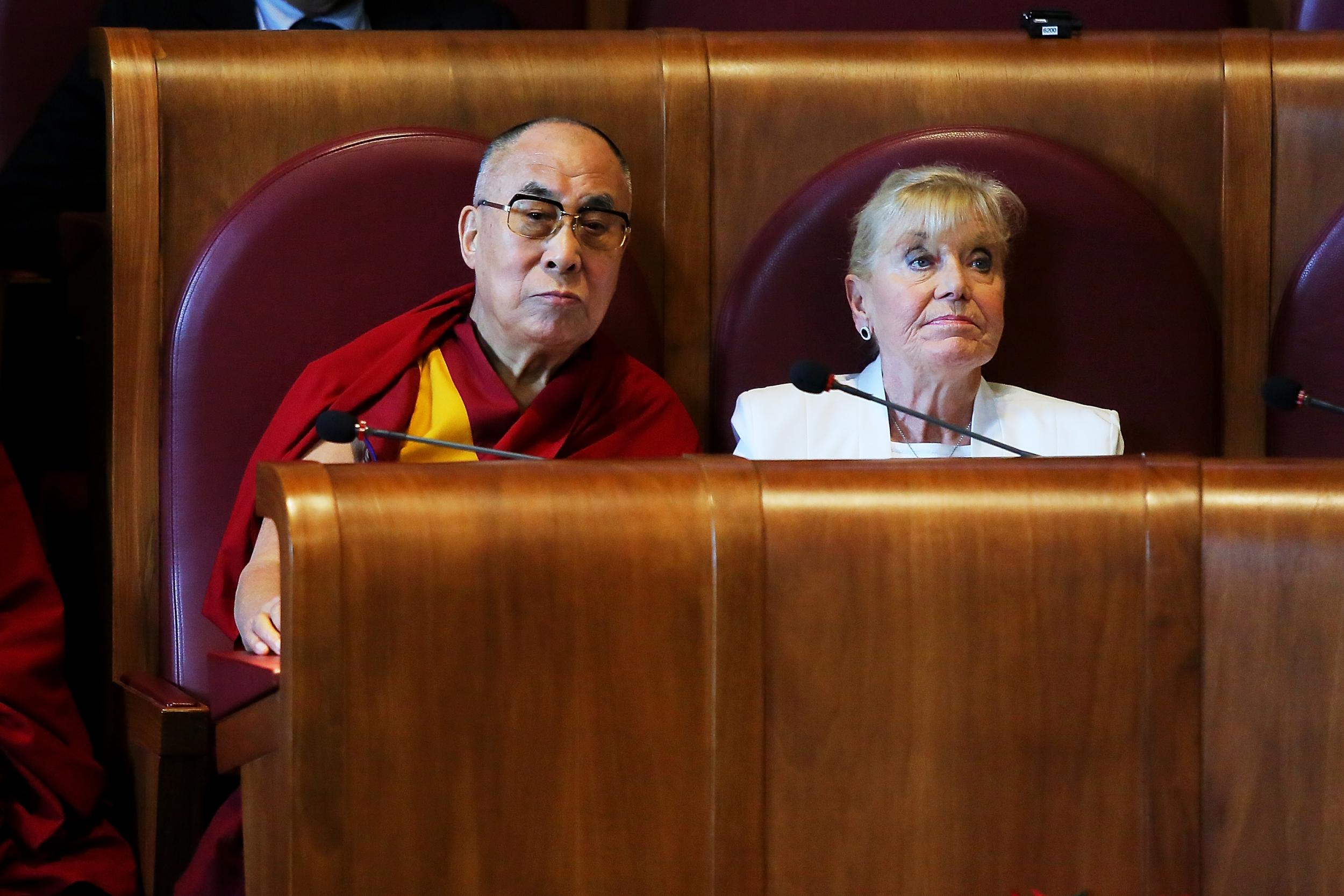Betty Williams: Northern Ireland peace activist who shared a Nobel prize
She helped to forge a path away from violence at the height of the Troubles

Your support helps us to tell the story
From reproductive rights to climate change to Big Tech, The Independent is on the ground when the story is developing. Whether it's investigating the financials of Elon Musk's pro-Trump PAC or producing our latest documentary, 'The A Word', which shines a light on the American women fighting for reproductive rights, we know how important it is to parse out the facts from the messaging.
At such a critical moment in US history, we need reporters on the ground. Your donation allows us to keep sending journalists to speak to both sides of the story.
The Independent is trusted by Americans across the entire political spectrum. And unlike many other quality news outlets, we choose not to lock Americans out of our reporting and analysis with paywalls. We believe quality journalism should be available to everyone, paid for by those who can afford it.
Your support makes all the difference.Betty Williams, who has died aged 76, was the Nobel prize-winning activist who had campaigned for peace in Northern Ireland in the Seventies and continued to support a multitude of causes for over 40 years.
This was largely through Peace People, a group she co-founded in 1976, and on a worldwide stage through the Nobel Women’s Initiative.
Elizabeth Smyth was born in 1943 in Belfast to a Catholic mother and a Protestant father who worked as a butcher. Following education at St Dominic’s Grammar School she left aged 15 and took an office job.
The Peace People group owed its origin to a tragic sequence of events that began on 10 August 1976 when British soldiers shot and killed Danny Lennon, a 23-year old IRA volunteer and driver. Lennon’s car careered off the road and crashed into the family of Anne Maguire. She lost three children, as Joanne (eight) and Andrew (six weeks) died immediately and John (two) died the next day in hospital. Anne took her own life four years later.

Williams, who was driving nearby, had heard the gunfire and was one of the first to arrive at the scene. Following the tragedy, she was motivated to create a petition calling for a cessation of the hostilities which soon gathered 6,000 signatures. In the days that followed a march of several hundred people passed close to the house of Mairead Corrigan Maguire, Anne’s sister, who was moved to join the campaign.
The subsequent gathering of the newly formed Women’s Peace Movement saw a crowd of some 10,000 people come together at Andersonstown in west Belfast on a pilgrimage to the graves of the children who had died. The march was disrupted by members of the IRA who called the group’s members “dupes of the British”. Unintimidated by these threats, the movement’s demonstration the following week brought 20,000 people into Ormeau Park, Belfast.
Working together with the journalist Ciaran McKeown, Williams and Corrigan Maguire established the Peace People group, as it is known to this day. The group’s first declaration, penned by McKeown, was straightforward and to the point: “We have a simple message to the world from this movement for peace. We want to live and love and build a just and peaceful society.”
Their marches brought many thousands to the streets of Belfast, Dublin and London. Peace People said that within six months of their founding, violence had dropped by 70 per cent and would never return to the rate of death and destruction experienced at the height of the Troubles.

Williams and Corrigan Maguire were jointly awarded the Nobel Peace Prize that year for their work in seeking to bring an end to the conflict in Northern Ireland. Williams took readily to the role of peace ambassador, travelling worldwide and meeting with figures including the Dalai Lama, Mother Theresa and Nelson Mandela.
Williams left Peace People in 1980, while Corrigan Maguire has remained as the organisation’s president. Williams then spent the next two decades in the United States, where she lectured extensively, before returning to settle in the Irish republic.
In 2006 she helped to found the Nobel Women’s Initiative, together with Corrigan Maguire and others. The organisation seeks to work for peace, justice and equality. Asked about the role of women in changing the world, Williams said: “Don’t kill my child, it’s easy to remember, and you didn’t give birth to your baby for someone to take its life.”
She was the subject of a 2018 documentary Betty Williams: Contagious Courage, directed by Dawn Gifford Engle.
She is survived by husband James T Perkins who she married in 1982 and her two children.
Betty Williams, peace campaigner, born 22 May 1943, died 17 March 2020
Join our commenting forum
Join thought-provoking conversations, follow other Independent readers and see their replies
Comments